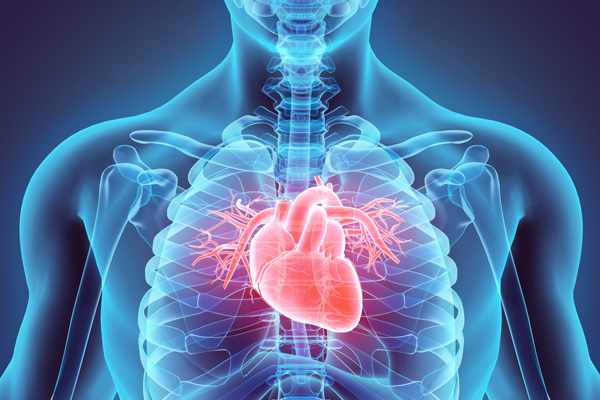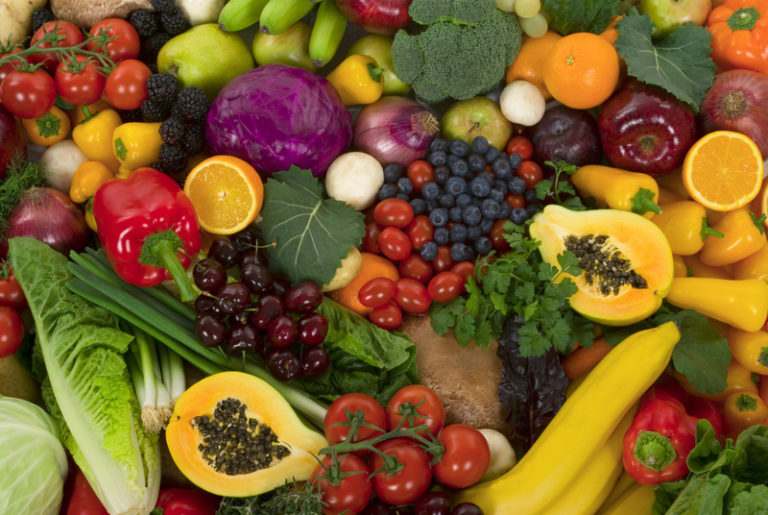I wanted to share with you today an article which appeared on the Green Med Info website: “Wheat Cardiotoxicity: As Serious as a Heart Attack”.
This article is based upon an article written by Loren Cordain:
“It was actually Loren Cordain, Ph.D., author of the Paleo Diet, who (to our knowledge) first pointed out the inherent cardiotoxicity of wheat. In the March 2008 edition of The Paleo Diet Newsletter, Cordain explains in an article titled, “Whole Wheat Heart Attack Part2: The Role of Dietary Lectins,” how dietary lectins, as found in wheat, promote the formation of fatty streaks and mature atherosclerotic plaque in the arteries”.
Lectins have received a recent surge of developing awareness as a result of the recent work and book written by Steven Gundry, MD
The prevailing attitude – one that I personally agree with that I have gathered by discussing this topic with many individuals within the practitioner community is that yes lectins can be important, however it is not something that everyone needs to be fanatical about in terms of avoidance.
It may be a factor to consider in individuals that are dealing with such conditions as autoimmune conditions, gut health etc. and short term elimination from the diet is worth considering to remove one potential causative agent.
Cordain’s hypothesis – echoed by Sayer Ji, the founder of Green Med Info is that lectins consumed with whole wheat products may be involved in the progression or acceleration of athersclerosis.
Category: Disease Conditions
The New Meatless Burgers: Are They Healthy?
Written by Rob on . Posted in Blood Sugar, Brain Health / Conditions, Cardiovascular Health, Diet, Digestion / Gut Health, Disease Conditions, Health News. Leave a Comment
There has been a lot of excitement recently with the arrival on the market of plant based burgers which simulate “the real thing” – traditional burgers made of meat: I have tried them myself.
But the key question is: are they healthy?

The first place to start when considering this is the label to look at the ingredients:
Strike Number One:
One of the ingredients in these products is canola oil: highly processed canola oil extracted under extreme heat and pressure does not belong in a health promoting diet!
Strike Number Two: and The Final Strike:
Cleaning Fruits & Veggies: A Simple Solution
Written by Rob on . Posted in Anti-aging, Blood Sugar, Brain Health / Conditions, Cardiovascular Health, Diet, Digestion / Gut Health, Disease Conditions, Female Conditions / Issues, Health News, Male Conditions / Issues, Pain / Inflammation, Toxins. Leave a Comment
We live in a toxic world and avoiding chemicals sprayed on fruits and vegetables makes good health sense.
Some fruits and vegetables are more problematic vs. others in terms of chemical content: a good resource for this information is the Environmental Working Group:
This is the organization which annually publishes the “Dirty Dozen” list: a list of the twelve most heavily sprayed fruits and vegetables.
Not only this but the EWG also lists the fruits and vegetables that are the least likely to cause issues with respect to chemical exposure.
Eating organic always makes sense however it can get expensive and these lists can serve as good guidelines to be able to choose which fruits and vegetables to buy organic – and those for which conventional may be okay, or at least less problematic.
A Simple Cleaning Solution for Fruits and Vegetables
Trying to remove chemicals from the surfaces of fruits and vegetables makes sense to minimize exposure: there are now compounds sold in stores which can be used for this, however here is a simple recipe you can make at home for this purpose.
- Combine the ingredients below in a large bowl. The concoction will bubble and fizz a lot after mixing so the bowl needs to be big.
- 1 cup of water
- 1 cup of white vinegar or cider vinegar
- 1 tablespoon of baking soda
- 2 teaspoons of lemon juice
If you have access to it, 1 tablespoon of food grade hydrogen peroxide can also be added to the mix.
Make sure to follow usage instructions and avoid skin contact.
2. Stir the mixture and then transfer to a spray bottle
3. Spray on fruits and vegetables
4. Allow the mixture to sit for about 5 minutes
5. Rinse off with water
6. Give items a final visual inspection
Enjoy your produce with less health damaging chemicals!
Lengthen Telomeres by 40%, Extend Lifespan by 18%
Written by Rob on . Posted in Anti-aging, Blood Sugar, Brain Health / Conditions, Cardiovascular Health, Disease Conditions, Health News, Vitamins, Minerals, Herbs. Leave a Comment
Enzogenol, the signature ingredient in our recently launched GenZogenol-R Healthy Aging formulation has been shown in rodent studies to lengthen telomeres by over 40% and to extend healthspan significantly as well as extend lifespan by 18% – this would equate to 15 years in humans.
We cannot assume of course that results in rodents will be duplicated in humans, however my personal philosophy has always been that when I come across an ingredient or formulation that directly targets the health of DNA and has such a significant impact on healthspan – and potentially lifespan – I am taking it!
We are working towards human clinical trials to corroborate these results, and that is a key concept with our company: we utilize third party technologies and lab tests (such as telomere length and health as well as age related methylation degradation) to corroborate the efficacy of our formulations.
GenZogenol-R targets the aging process at a DNA level
Two key animal studies:
- In a rat study, Enzogenol LENGTHENED telomeres by more than 40%
- In a mouse study in middle aged mice, one cohort was supplemented with Enzogenol and the other cohort was not
- The cohort group supplemented with Enzogenol achieved an extension of healthspan as well as lifespan (18% lifespan extension which in humans would equate to 15 years)
Key GenZogenol-R Applications:
Read More:
https://www.dropbox.com/s/6hyxd3uk9ip09qs/GenZogenol-R%20Article.docx?dl=0
Social Media Guru Virpi Mikkonen, 39, Admits a Vegan Diet Ruined Her Health
Written by Rob on . Posted in Anti-aging, Blood Sugar, Brain Health / Conditions, Cardiovascular Health, Diet, Disease Conditions, Health News. Leave a Comment
I am concerned about the increasing popularity of the vegan movement and vegan diets with respect to its potential impact on individuals’ health.
My personal opinion and my experience working with patients is that initially individuals who adopt a (healthy) vegan diet may realize some health benefits, however over the long term there is a significant potential that these individuals may develop nutrient deficiencies which may have profound effects on health.
From my perspective, there are a couple of considerations to this:
Firstly, every individual is biochemically and metabolically unique and a vegan diet may not be appropriate for a specific individual. This is the same consideration with respect to any diet, whether it be low carb/high fat, vegetarian – or whatever.
The second consideration is the fact that most individuals simply do not have the knowledge and expertise to understand how to assess whether they are developing deficiencies, or how to supplement to address these deficiencies or prevent them.
I recently presented a three hour Master Class lecture to 4th year Naturopathic students at our local Naturopathic school: Boucher.
The topic of the lecture presentation covered ketosis, the ketogenic diet, intermittent fasting, time restricted feeding – but also information on the Fasting Mimicking Diet developed by Valter Longo, PhD.
If you are not familiar with the Fasting Mimicking Diet (FMD), the concept is that for a limited number of days during any month if you consume a restricted number of calories of specific types of food, it has the effect of providing a CRM (Caloric Restriction Mimetic) influence on the metabolism for the whole month.
And Longo and his colleagues have published a considerable number of studies to back up his hypothesis.
The one negative about the program is that they recommend accessing (expensive) prepared meals from a provider for the fasting days in a set up similar to Weight Watchers.
Also in the lecture presentation, I talked about some of the issues related to vegan diets (deficiencies) – and also with animal protein consumption (the primary concern being an increase in IGF-1 insulin like growth factor levels which can stimulate cell growth and division – and some ways to counteract this mechanism which I will detail in a separate article).
Today I wanted to share an article from the Daily Mail newspaper in the UK detailing Virpi Mikkonen who is a high profile poster girl for the meat-free revolution and a social media guru and how she confessed that a vegan diet ruined her health and brought on early menopause.
Also I am including some information from my Boucher lecture regarding some of the potential nutrient deficiencies associated with a vegan diet.
Individuals choose specific diets for different reasons: for ethical and environmental issues (common with the vegan community), they buy into a fad diet which has become popular – or hopefully like myself and I would presume many practitioners reading this article that have biohacked their metabolism to determine the best diet to optimize their health and quality of life.
For myself, a LCHF (low carb / high fat) / ketogenic diet works optimally: I do not stay in ketosis continuously but I have adapted my metabolism so that it can switch back and forth effortlessly between burning fat and sugars.
I am of the opinion that this metabolic flexibility is something that all individuals can benefit from, provided their metabolism and health will allow them to stay in a continuous state of ketosis to initially make this transition to being keto adapted, which takes about six weeks.
Read More
Milk & Milk Products: Good or Bad For Your Health?
Written by Rob on . Posted in Cardiovascular Health, Diet, Disease Conditions, Health News. Leave a Comment
There is ongoing debate about whether the consumption of milk and milk products provides health benefits or alternatively are detrimental to health.
One consideration is important when reviewing publications related to this topic: author/researcher bias.
As an example, I have included an article in this newsletter authored by T. Colin Campbell, PhD.
Some of you may recognize Campbell as the author of “The China Study” which concluded that research conducted in China showed that vegetarian diets were superior to the inclusion of animal protein in the diet.
Independent review of Campbell’s research showed convincingly that the data in the study was selective to prove his hypothesis and in addition Campbell is known to be a big supporter of vegetarian and vegan diets.
Here is an example of some of the rebuttals to Campbell’s study
A1 vs. A2 Protein:
This article also highlights the suggestion that the protein derived from different species of cattle can have different health effects – either good or bad. This is referred to the difference between A1 and A2 protein:
- A1 beta-casein comes from the most common cow breed that originated in Australia, United States, and Northern Europe. Holstein, Friesian, Ayrshire, and British Shorthorn features A1 beta-casein genetic material. A1 beta-casein can be found on all commercially-prepared milk.
- A2 beta-casein is protein found in milk produced by ‘old-fashioned’ cows like the Jersey, Charolais, Guernsey, and Limousin. Milk produced by other mammals such as those from human, goat, and sheep is similar to A2 dairy milk mainly due to the presence of proline (6 ,7).
Milk
produced by A1 cows supposedly produces opiate-like effects resulting in the
development of mild to serious medical conditions (2).
What is BCM7?
BCM7 (Beta-casomorphin-7), an opioid
peptide opioid peptide in A1 beta-casein
is produced as a result of the breaking off of histidine in the number 67 amino
acid chain during digestion(9, 10).
BCM7 is the reason why regular cow’s milk is considered to be a less healthy
option than milk containing A2 beta-casein.
The absorption of BCM7 into the bloodstream leads to the high incidence of
autism, schizophrenia, and other neurological disorders(11, 12, 13, 14).
Also milk contains various hormones which may be detrimental to consume:
IGF-1 has been associated in some studies with increased height as well as cancer. …
First, cow’s milk contains steroid hormones such as estradiol and testosterone, and peptide hormones such as IGF-1.
Second, drinking milk has been shown to boost serum levels of certain hormones, particularly IGF-1, in humans.
It is also well known that many individuals (approximately 25% of the population in North America) are lactose intolerant and many individuals are reactive to milk.
I have also included an abstract which suggests that milk and milk products are beneficial for human health:
“The totality of available scientific evidence supports that intake of milk and dairy products contribute to meet nutrient recommendations, and may protect against the most prevalent chronic diseases, whereas very few adverse effects have been reported”.
My personal opinion is that cow’s milk is best suited to baby cows, however this is certainly not a black and white consideration.




